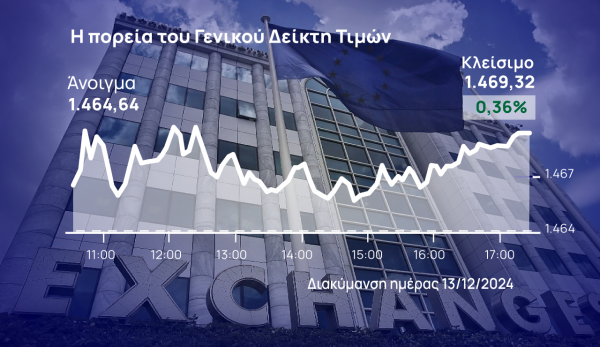
With electronic transactions having risen sharply since the March 2020 pandemic, e-shops and online sales are constantly on the radar of financial crime unit SDOE and independent state revenue agency AADE. The ramps of the tax audit mechanism are looking for “missing traders”, rings that through carousel scams steal millions of euros from public VAT and generally those who do not cut receipts by putting in their pocket the VAT they collect from consumers. Tax audits focus on online stores and online sales. Investigations reveal sea bass as multi-million euro tax evasion cases are uncovered.
The latest major case of carousel fraud by e-commerce stores revealed by SDOE came to light last week. The auditors, utilizing relevant information, carried out audits of companies active in the purchase and sale of mobile phones, game consoles, PC tablets and laptops, and in particular the trade in the provision of goods and services carried out remotely by electronic means. The audits identified a network of companies that operated methodically and over time, with the establishment of legal entities with managers or legal representatives, domestic or foreign natural persons that are extremely difficult to identify and have the characteristics of a “missing trader”. The purpose of the circuit was to make sales through the online stores, and the taxes that were to be offset and in fact not to be reimbursed, with the trick of obtaining fictitious invoices for the expenses of non-existent suppliers. The action of the circuit resulted in a loss for the state coffers, over 14 million euros only from non-payment of VAT. for the years 2019 and 2020, while it is estimated that the total loss for the Greek State amounts to over 30 million euros.
A few months ago, specifically in March 2021, the SDOE, after conducting an audit of a company engaged in the sale of mobile phones via the Internet, found serious indications of widespread tax evasion, through inaccurate VAT returns and issuance of tax data from the tax office. monkey cash register). The auditors immediately demanded the lifting of banking secrecy for the company’s bank accounts. The audit and cross-checking of the data revealed that the company in 2020, in the midst of a pandemic, received from the sale of mobile phones the amount of 7 million euros for which it had not cut receipts with the theft of VAT estimated at more than 1.6 million.
Fifteen million euros in VAT lost in 3 years
In November 2020, the SDOE ramps had located three e-shops that are active in the purchase and sale of mobile phones, game consoles, tablet PCs and laptops that had “disappeared” within three years VAT of 15 million euros with the method of the carousel.
The carousel method
VAT losses (net VAT) in Greece are estimated at at least 6.5 billion euros, according to the Commission. The most common form of fraud used by crime rings is the carousel method. It relies on the trick of getting invoices from non-existent suppliers, the so-called “missing merchants”.
With the carousel method, the goods that are to be sold in the Greek market make a circle between various companies within the EU. and at some point the company that had to pay VAT to the State “disappears”. Usually all the companies involved, which distribute the same batch of goods, belong to the same criminal ring. Thus, they transfer products from one company to another, the bank accounts of the first company are credited for the price, but they never return the VAT, which ends up in the pockets of the criminal perpetrators.
The “missing merchants”
According to the data of AADE in the first half of 2021, the competent auditing authorities located a total of 97 “missing” traders in whom they deactivated the VAT. More specifically, in the six months January – June 2021, the Public Revenue Control and Assurance Service (YEDDE) completed 116 investigations for VAT fraud, while another 114 investigations are in progress. Of the 116 that were audited, 97 were found to have serious tax violations and mainly in the field of VAT fraud, their VAT numbers were deactivated, while they were charged high fines and surcharges. The crime rate is 84% (of the cases audited), while the total missing public revenue from the specific cases amounted to EUR 21.65 million.
From the investigations carried out in 2020, AADE located 144 missing merchants for whom it “locked” and deactivated their VAT number. According to the data of AADE, in 2020, the Public Revenue Assurance Investigation Service (YEDDE) completed 207 investigations for fraud in the VAT sector. It is noted that their number is 26.2% higher compared to the investigations conducted in 2019, when 164 fraud investigations were completed.
The deactivation of the TIN
According to the tax legislation, the process of deactivation of VAT is carried out in cases where a case of tax evasion is identified but also as a precaution, if the control of the authorities reveals that:
– Have not submitted income tax and value added tax (VAT) returns for two consecutive years
– An audit or spot check of the Tax Authority shows that there is no economic activity of the company or
– An audit or spot check of the Tax Authority shows that the merchant has declared false or inaccurate information in order to be granted a Tax Registration Number.
– Found to have incomplete or incorrect holder information.
Latest News

Rhodes Airport Tops Fraport Greece’s Regional Airports in 2024 Performance
According to Fraport's data, more than 35 million passengers (specifically 35.2 million) were handled by Fraport-managed airports during the 11 months.

European Central Bank Cuts Interest Rates by 25 Basis Points
It is the fourth cut of interest rates by Europe’s central bank, a move expected by the markets and financial analysts leading to the rate settling at 3%.

Airbnb: New Measures Add €600 in Extra Costs for Property Owners
Property managers face an immediate administrative fine of 5,000 euros if access to the inspected property is denied or any of the specified requirements are not met.

Economist: Greece Included in the Best Performing Economies in 2024
Meanwhile, Northern European countries disappoint, with sluggish performances from the United Kingdom and Germany.

EasyJet Expands Its Routes from Athens
The airline’s two new routes will be to London Luton and Alicante and they will commence in summer 2025.

Capital Link Forum Highlights Greece’s Economic Resurgence; Honors BoG Gov Stournaras
Capital Link Hellenic Leadership Award recipient, Bank of Greece Gov. Yannis Stournaras, an ex-FinMin, was lauded for his pivotal role during Greece’s economic recovery

Tourist Spending in Greece Up by 14%, Visa Card Analysis Shows
Greece’s capital Athens emerged as the most popular destination, recording a 17% increase in transactions with Visa cards, surpassing even the cosmopolitan island of Mykonos.

Inflation in Greece Unchanged at 2.4% in Nov. 2024
The general consumer price index (CPI) posted a 0.4% decrease in November compared to the previous month

2024 Christmas Holidays: Extended Shop Hours Schedule
The 2024 Christmas Holidays extended shop hours schedule commences on Thursday, December 12 and runs until the end of the year.

ELSTAT: Seasonally Adjusted Unemployment Down in October
The number of employed individuals reached 4,284,694, an increase of 67,723 compared to October 2023 (+1.6%) and 22,002 compared to September 2024 (+0.5%).














![Fraport: Πάνω από 35 εκατ. επιβάτες στα αεροδρόμια το 11μηνο – Πτώση στη Μύκονο [πίνακας]](https://www.ot.gr/wp-content/uploads/2022/06/fraport-90x90.jpg)



























 Αριθμός Πιστοποίησης Μ.Η.Τ.232433
Αριθμός Πιστοποίησης Μ.Η.Τ.232433